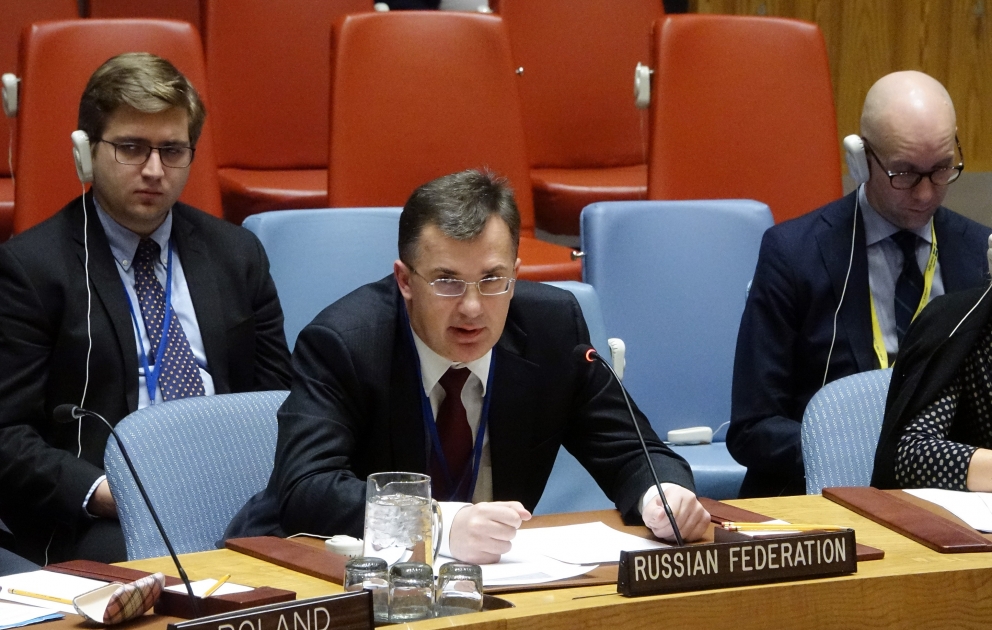Statement by Mr.Gennady Kuzmin, Deputy Permanent Representative of the Russian Federation to the United Nations, at the Security Council on threats to international peace and security caused by terrorist acts
We are pleased to welcome the new Chair of the Security Council Counter-Terrorism Committee (CTC), Mr. Gustavo Mesa-Cuadra Velásquez, Permanent Representative of Peru.
We are grateful to him for his very detailed report. Today the threat of terrorism has expanded on a huge scale, including geographically. Terrorists take advantage of gaps in our border control systems to travel across frontiers; they use modern technologies to recruit followers and search for sources of income; they exploit captured enterprises in conflict zones and increasingly invest in legitimate businesses, as we discussed a few days ago (see S/PV.8178).
However, infrastructure facilities — airports, oil refineries, communication networks, banks — continue to be extremely attractive targets for terrorists. The situation is complicated by the fact that the elements of critical infrastructure are deeply interconnected, and they frequently operate in more than one jurisdiction.
We firmly believe that in these circumstances, the exchange of information and best practices between specialized international and regional platforms, under the central coordinating role of the United Nations, is particularly essential, and we welcome the work of the CounterTerrorism Committee Executive Directorate (CTED) in that regard.
As Mr. Mesa-Cuadra rightly noted, the interaction of the CTC and CTED with organizations such as the Collective Security Treaty Organization, the Anti-Terrorism Centre of the Commonwealth of Independent States and the Regional Anti-Terrorist Structure of the Shanghai Cooperation Organization. The Security Council has in its arsenal a whole range of decisions aimed at protecting critical infrastructure from the threats of terrorism, centred around its founding anti-terrorism resolution 1373 (2001).
In our view, the premise, affirmed in this toolkit, that it is States that have the primary responsibility in the fight against terrorism and, correspondingly, in protecting their lands and infrastructure from terrorist threats, is of fundamental importance. For our part, we prioritize issues related to improving the legal framework and implementing practical tasks for protecting critical infrastructure.
One of the main targets of terrorist attacks in Russia are fuel and energy facilities. In that regard, as long ago as 2011 we created special commissions responsible for inspecting energy infrastructure facilities for anti-terrorism protection. We conduct joint counter-terrorism exercises and training sessions on a regular basis, including with the participation of the private sector.
After the March 2010 terrorist attacks in the Moscow metro, we established a complex programme for the transport security of the population, under which transport infrastructure facilities are equipped with modern protection devices. Incidentally, according to our data, as many as 70 percent of terrorist attacks around the world occur either on transportation or through the use of vehicles.
Besides this, in 2012 we established our Centre for Cyber Incident Response in Information Systems of Government Authorities. We are ready to share the experience we have accumulated in implementing these and other anti-terrorism security initiatives with the CTC and all interested partners.
